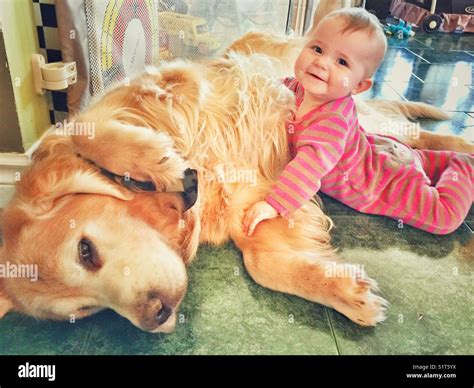
An 8-week-old Newfoundland puppy named “Professor” is captivating social media with his remarkably rapid growth, showcasing a dramatic transformation that has surprised even seasoned dog breeders and veterinarians. His journey, meticulously documented on TikTok by his owner, Ashley Lewis, under the handle @newfoundlandprofessor, highlights the breed’s inherent growth potential while also raising important considerations about responsible pet ownership and the specific needs of large-breed puppies.
The online community is abuzz with reactions to Professor’s accelerated development, with many expressing astonishment at the sheer scale of his growth within such a short period. Lewis’s videos, which have garnered millions of views, showcase Professor’s transformation from a small, fluffy puppy to a sizeable, imposing young dog in a matter of weeks. This rapid growth has not only amazed viewers but has also prompted discussions about the unique dietary and exercise requirements of Newfoundland puppies to ensure their healthy development.
Newfoundlands are renowned for their gentle nature and imposing size, traits that have made them popular family pets. However, their rapid growth during puppyhood necessitates careful management to prevent potential health issues such as hip dysplasia and osteochondrosis. Lewis’s commitment to providing Professor with the appropriate care has been a recurring theme in her TikTok videos, further emphasizing the responsibilities associated with owning such a large breed.
Professor’s viral fame has served as an educational platform, informing potential dog owners about the specific challenges and rewards of raising a Newfoundland puppy. Experts emphasize the importance of a balanced diet, controlled exercise, and regular veterinary check-ups to support the healthy development of these gentle giants.
The internet’s fascination with Professor exemplifies the power of social media to both entertain and educate. As Professor continues to grow, his journey serves as a valuable case study in responsible pet ownership and the extraordinary growth potential of Newfoundland puppies.
The Phenomenal Growth of Professor
Professor, the Newfoundland puppy, has become an internet sensation due to his astonishing growth rate. Documented by his owner, Ashley Lewis, through a series of engaging TikTok videos, Professor’s transformation has captivated a global audience, sparking conversations about canine growth, breed-specific care, and responsible pet ownership. The videos, which chronicle Professor’s development from a small, fluffy puppy to a significantly larger version of himself within just eight weeks, have amassed millions of views and prompted widespread discussion.
Lewis began documenting Professor’s life shortly after bringing him home, initially sharing typical puppy antics. However, as Professor grew, the videos took on a new dimension, focusing on his remarkable size increase. Commenters frequently express disbelief at how much Professor has grown in such a short time, often comparing him to other dogs of similar ages and breeds. The visual evidence presented in Lewis’s videos provides a compelling illustration of the Newfoundland breed’s rapid growth trajectory.
“I can’t believe how big he’s getting!” exclaimed one commenter on a recent TikTok video. “He’s going to be a gentle giant in no time!”
The documentation of Professor’s growth is not just for entertainment; it also serves as an informative resource for current and prospective Newfoundland owners. Lewis often includes details about Professor’s diet, exercise routine, and veterinary care in her videos, providing viewers with insights into the specific needs of this large breed.
Newfoundland Breed Characteristics
Newfoundlands, often referred to as “Newfies,” are a large, working dog breed originating from Newfoundland, Canada. Historically, they were bred to assist fishermen, performing tasks such as hauling nets, retrieving objects from the water, and even rescuing drowning individuals. Their physical characteristics and temperament reflect this history:
- Size: Male Newfoundlands typically weigh between 130 and 150 pounds and stand 28 to 30 inches tall at the shoulder. Females are slightly smaller, weighing between 100 and 120 pounds and standing 26 to 28 inches tall.
- Coat: They have a thick, water-resistant double coat that protects them from harsh weather conditions. The outer coat is long and coarse, while the undercoat is soft and dense.
- Temperament: Newfoundlands are known for their gentle, patient, and loyal nature. They are often referred to as “gentle giants” due to their affectionate demeanor and tolerance towards children and other animals.
- Lifespan: The average lifespan of a Newfoundland is 9 to 10 years.
The Newfoundland breed’s rapid growth during puppyhood is a defining characteristic that requires careful management. Improper nutrition and exercise can lead to developmental problems that can affect their long-term health and well-being.
The Importance of Proper Nutrition
Nutrition plays a crucial role in the healthy development of Newfoundland puppies. Due to their rapid growth rate, they require a diet that is specifically formulated for large-breed puppies. These diets typically contain:
- Moderate Calorie Content: Excessive calorie intake can lead to overly rapid growth, which can put stress on developing bones and joints.
- Controlled Calcium and Phosphorus Levels: These minerals are essential for bone development, but an imbalance can lead to skeletal abnormalities.
- High-Quality Protein: Protein is necessary for muscle development and overall growth.
- Omega-3 Fatty Acids: These fatty acids support brain development and help maintain a healthy coat.
“It’s crucial to feed large-breed puppies a diet that is specifically formulated for their needs,” explains Dr. Emily Carter, a veterinarian specializing in canine nutrition. “These diets are designed to support healthy growth without causing excessive weight gain or putting undue stress on the skeletal system.”
Lewis has emphasized the importance of Professor’s diet in her TikTok videos, often sharing details about the specific food she feeds him and consulting with her veterinarian to ensure that he is receiving the proper nutrition. This dedication to providing Professor with a balanced diet is an example of responsible pet ownership that has resonated with viewers.
Exercise and Physical Activity
While exercise is essential for all dogs, it is particularly important to manage the physical activity of Newfoundland puppies. Excessive or high-impact exercise can put stress on their developing joints and increase the risk of orthopedic problems.
Recommended exercise guidelines for Newfoundland puppies include:
- Short, Frequent Walks: Instead of long, strenuous hikes, opt for shorter, more frequent walks.
- Controlled Playtime: Supervise playtime to prevent excessive running and jumping.
- Swimming: Swimming is an excellent low-impact exercise for Newfoundlands, as it provides a full-body workout without putting stress on their joints.
- Avoid Forced Exercise: Do not force puppies to exercise beyond their comfort level. Allow them to rest when they need to.
Lewis has been careful to manage Professor’s exercise routine, ensuring that he gets enough physical activity without overdoing it. Her videos often show Professor enjoying short walks in the park, playing gently with toys, and swimming in a nearby lake. This balanced approach to exercise helps to promote healthy muscle development and prevent joint problems.
Potential Health Concerns
Newfoundlands are predisposed to certain health conditions, particularly those related to their large size and rapid growth. These include:
- Hip Dysplasia: A condition in which the hip joint does not develop properly, leading to pain and lameness.
- Elbow Dysplasia: Similar to hip dysplasia, but affecting the elbow joint.
- Osteochondrosis Dissecans (OCD): A condition in which cartilage separates from the underlying bone, most commonly affecting the shoulder, elbow, or stifle (knee) joint.
- Dilated Cardiomyopathy (DCM): A heart condition in which the heart muscle becomes weakened and enlarged.
- Subaortic Stenosis (SAS): A heart condition in which there is a narrowing of the aorta, the main artery carrying blood from the heart.
- Cystinuria: A genetic disorder that causes the formation of cystine stones in the urinary tract.
Regular veterinary check-ups are crucial for detecting and managing these potential health problems. Early diagnosis and treatment can improve the prognosis for many of these conditions.
Lewis has emphasized the importance of regular veterinary care for Professor in her TikTok videos. She regularly shares updates about his check-ups and vaccinations, demonstrating her commitment to ensuring his health and well-being.
Responsible Pet Ownership
Professor’s viral fame has highlighted the importance of responsible pet ownership, particularly when it comes to large-breed dogs. Owning a Newfoundland is a significant commitment that requires careful planning and preparation.
Considerations for responsible Newfoundland ownership include:
- Financial Resources: Large-breed dogs can be expensive to care for, requiring more food, medication, and veterinary care than smaller breeds.
- Living Space: Newfoundlands need ample space to move around and exercise.
- Time Commitment: They require regular exercise, grooming, and training.
- Knowledge of Breed-Specific Needs: Understanding the unique dietary, exercise, and health needs of Newfoundlands is essential for providing them with proper care.
Lewis’s dedication to providing Professor with the appropriate care has been praised by viewers and experts alike. Her videos serve as an example of responsible pet ownership, demonstrating the importance of research, preparation, and commitment when bringing a Newfoundland puppy into your home.
The Impact of Social Media
Professor’s story illustrates the power of social media to connect people and share information. His viral fame has not only entertained millions of viewers but has also educated them about the Newfoundland breed and the responsibilities of pet ownership.
Social media platforms like TikTok can be valuable tools for:
- Sharing Information: Pet owners can share tips and advice about caring for specific breeds.
- Connecting with Other Owners: Social media can provide a supportive community for pet owners to connect with others who share their experiences.
- Raising Awareness: Viral content can raise awareness about important issues related to animal welfare and responsible pet ownership.
However, it is also important to be aware of the potential pitfalls of social media. Misinformation and unrealistic expectations can be prevalent, so it is crucial to rely on credible sources and consult with experts when making decisions about pet care.
Lewis has used her TikTok platform to share accurate information about Newfoundland care and to promote responsible pet ownership. She regularly interacts with her followers, answering their questions and providing guidance based on her own experiences. This engagement has helped to create a positive and informative online community surrounding Professor’s story.
The Future of Professor
As Professor continues to grow, his journey will undoubtedly continue to captivate audiences around the world. His story serves as a reminder of the unique bond between humans and animals and the importance of responsible pet ownership. Whether he continues his social media reign or settles into a comfortable life with Ashley Lewis, Professor has already made a significant impact, educating and entertaining millions while showcasing the incredible potential of the Newfoundland breed.
Expanded Analysis of the Newfoundland Breed’s Growth and Care:
To fully appreciate the phenomenon of Professor’s rapid growth, a deeper dive into the specific physiological and environmental factors influencing Newfoundland puppies is necessary. This includes a detailed look at their genetics, metabolic rate, hormonal influences, and the impact of early socialization and training.
-
Genetic Predisposition: Newfoundlands, as a large breed, are genetically predisposed to rapid growth during their first year. Genes control the production of growth hormones and the efficiency with which their bodies convert nutrients into tissue. Certain genetic lines within the breed may exhibit even faster growth rates, although this can also increase the risk of developmental problems. Genetic testing and pedigree analysis can sometimes offer insights into potential growth patterns and associated health risks.
-
Metabolic Rate and Nutrient Utilization: Puppies, in general, have a higher metabolic rate than adult dogs, as they require more energy to support their rapid development. Newfoundland puppies, due to their size, have an even higher caloric demand per pound of body weight compared to smaller breeds. Efficient nutrient utilization is crucial; a well-balanced diet ensures that the puppy’s body effectively absorbs and utilizes essential nutrients like protein, calcium, phosphorus, and vitamins. Supplementation should only be considered under the guidance of a veterinarian, as over-supplementation can disrupt the delicate balance required for healthy bone and joint development.
-
Hormonal Influences: Growth hormone, thyroid hormones, and sex hormones all play a role in regulating growth. Growth hormone, produced by the pituitary gland, stimulates the liver to produce insulin-like growth factor 1 (IGF-1), which directly promotes bone and muscle growth. Thyroid hormones regulate metabolism and influence the overall rate of development. Sex hormones, which become more active during puberty, eventually signal the end of rapid growth by closing the growth plates in the bones. Imbalances in these hormones can lead to abnormal growth patterns.
-
Early Socialization and Training: While not directly impacting physical growth, early socialization and training are crucial for the overall well-being of a Newfoundland puppy. Exposing the puppy to a variety of sights, sounds, people, and other animals during the critical socialization period (roughly 3 to 16 weeks of age) helps to develop a well-adjusted and confident adult dog. Basic obedience training is essential for managing a large-breed dog like a Newfoundland. A well-trained Newfoundland is easier to handle, less likely to develop behavioral problems, and more enjoyable to live with. Proper training also includes teaching the puppy appropriate behaviors around food, as Newfoundlands can be prone to overeating if not managed carefully.
-
The Role of Veterinary Monitoring: Regular veterinary checkups are paramount for monitoring a Newfoundland puppy’s growth and development. Veterinarians can assess the puppy’s overall health, monitor their weight and body condition, and detect early signs of developmental problems like hip dysplasia or osteochondrosis. Radiographs (X-rays) may be recommended to evaluate joint development, especially if there are any concerns about lameness or stiffness. Veterinarians can also provide guidance on nutrition, exercise, and preventative healthcare.
-
Detailed Nutritional Breakdown: While a “large-breed puppy food” is generally recommended, understanding the specific nutrient requirements is crucial. Look for foods with:
- Protein: Aim for around 25-28% protein on a dry matter basis, derived from high-quality animal sources.
- Fat: Moderate fat content (around 12-15%) is important for energy and coat health.
- Calcium and Phosphorus: These minerals should be carefully balanced, with a calcium-to-phosphorus ratio of approximately 1.2:1 to 1.4:1. Excessive calcium can be detrimental, particularly in large-breed puppies.
- Fiber: Adequate fiber (around 3-5%) promotes digestive health and helps with satiety.
- Omega-3 Fatty Acids: EPA and DHA, found in fish oil, support brain development and reduce inflammation.
- Glucosamine and Chondroitin: These supplements may help to support joint health, although their efficacy is still debated.
-
Controlled Exercise Regimen – A More Detailed Approach: It’s not just about avoiding strenuous exercise; it’s about structuring physical activity in a way that promotes healthy development.
- Surface Considerations: Avoid running or jumping on hard surfaces like concrete or asphalt, especially during the early months. Opt for softer surfaces like grass or dirt.
- Duration and Frequency: Multiple short play sessions are better than one long, intense workout. This allows for adequate rest and recovery.
- Leash Walking Etiquette: Train the puppy to walk politely on a leash without pulling. Pulling can put undue stress on the neck and shoulders.
- Hill Work: While gradual incline walks can be beneficial for muscle development, avoid steep hills or prolonged uphill climbs, as these can strain the joints.
- Swimming Progression: Introduce swimming gradually, starting with short sessions in shallow water. As the puppy becomes more confident, gradually increase the duration and depth.
-
Managing Growth Spurts: Newfoundland puppies experience periods of rapid growth followed by periods of slower growth. During growth spurts, their appetite may increase, and they may seem more tired than usual. It’s important to adjust their food intake accordingly and provide them with plenty of rest.
-
Recognizing Early Signs of Orthopedic Problems: Being vigilant for early signs of orthopedic problems is crucial. These signs may include:
- Limping or lameness: Even mild limping should be investigated.
- Stiffness: Difficulty getting up or moving around after resting.
- Pain or tenderness: Reacting negatively to being touched in certain areas.
- Reluctance to exercise: Avoiding activities that they previously enjoyed.
- Abnormal gait: An unusual way of walking or running.
- Clicking or popping sounds: Hearing unusual noises coming from the joints.
-
Addressing Common Misconceptions: There are several common misconceptions about raising large-breed puppies that need to be addressed:
- “The puppy will grow out of it.” Ignoring potential problems in the hope that they will resolve on their own can have serious consequences.
- “More food is always better.” Overfeeding can lead to excessive weight gain and increase the risk of orthopedic problems.
- “Supplements are a substitute for good nutrition.” Supplements should only be used under the guidance of a veterinarian and should not be seen as a replacement for a well-balanced diet.
- “All large-breed puppy foods are the same.” It’s important to carefully research and choose a food that meets the specific needs of your puppy.
-
The Ethical Responsibility of Breeders: Reputable breeders play a crucial role in ensuring the health and well-being of Newfoundland puppies. They carefully select breeding pairs to minimize the risk of genetic diseases and provide puppies with optimal care during their early development. Prospective owners should seek out breeders who are knowledgeable, transparent, and committed to responsible breeding practices.
-
The Long-Term Commitment: Owning a Newfoundland is a long-term commitment that requires dedication and resources. These dogs need regular grooming, exercise, training, and veterinary care. It’s important to be prepared for the challenges and rewards of owning such a large and demanding breed.
By understanding the specific needs of Newfoundland puppies and providing them with proper care, owners can help them to reach their full potential and enjoy a long and healthy life. Ashley Lewis’s dedication to Professor exemplifies responsible pet ownership and provides a valuable example for others to follow. The focus on controlled growth, balanced nutrition, and early socialization are cornerstones of responsible Newfoundland ownership, paving the way for these “gentle giants” to thrive. The narrative surrounding Professor should continue to emphasize these critical aspects, promoting informed decisions among prospective owners and fostering a greater appreciation for the unique needs of this magnificent breed. Frequently Asked Questions (FAQ):
- What makes Professor’s growth so remarkable?
Professor’s growth is remarkable due to the Newfoundland breed’s inherent rapid growth combined with potentially optimal nutrition and care. The breed itself is known for significant growth in the first year, and Professor’s documented transformation within just eight weeks is particularly striking. The meticulous documentation on TikTok allows for a clear visual comparison that highlights the speed and scale of his development.
- What are the specific dietary needs of a Newfoundland puppy like Professor?
Newfoundland puppies require a diet specifically formulated for large-breed puppies. This includes moderate calorie content to prevent overly rapid growth, controlled levels of calcium and phosphorus to support healthy bone development, high-quality protein for muscle development, and omega-3 fatty acids for brain development and coat health.
- How much exercise should a Newfoundland puppy get, and what types are best?
Exercise should be managed carefully to avoid stressing their developing joints. Short, frequent walks are preferable to long, strenuous hikes. Controlled playtime is important to prevent excessive running and jumping. Swimming is an excellent low-impact exercise. Avoid forced exercise and allow the puppy to rest when needed.
- What are the common health concerns associated with Newfoundlands, and how can they be prevented?
Common health concerns include hip dysplasia, elbow dysplasia, osteochondrosis dissecans (OCD), dilated cardiomyopathy (DCM), subaortic stenosis (SAS), and cystinuria. Regular veterinary check-ups are crucial for early detection and management. Responsible breeding practices can also help to minimize the risk of genetic diseases.
- What are the key responsibilities of owning a Newfoundland puppy?
Owning a Newfoundland puppy requires a significant commitment of time, financial resources, and effort. Key responsibilities include providing a balanced diet, managing exercise, ensuring regular veterinary care, engaging in early socialization and training, and understanding the breed-specific needs of Newfoundlands. This includes providing ample space to move around, understanding the commitment to grooming, and being prepared for the larger expenses associated with the breed.









